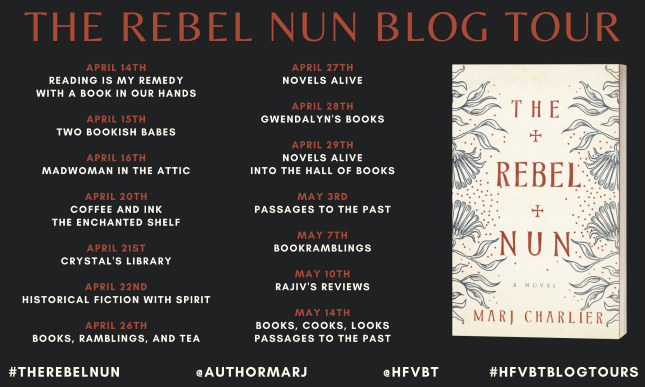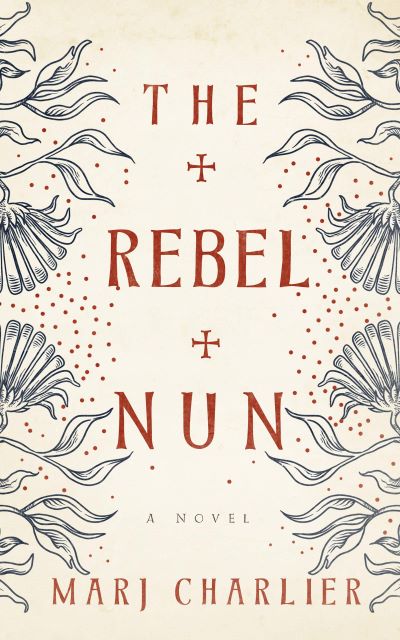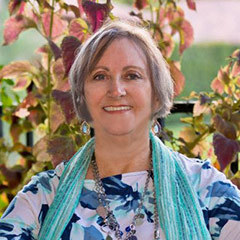 One bitterly cold New Year’s Eve early in the fifth century, the Rhine River froze, allowing thousands of Germanic peoples, fleeing the Huns, to cross into the Roman Empire and changing the Western world overnight.
One bitterly cold New Year’s Eve early in the fifth century, the Rhine River froze, allowing thousands of Germanic peoples, fleeing the Huns, to cross into the Roman Empire and changing the Western world overnight.
Four years ago, I didn’t know this.
For me, the greatest pleasure in being a historical novelist is I get to tell people what I just learned. It’s like when I was a kid and I’d run home after school and regale my mom and dad with some amazing fact I learned that day – maybe in history, maybe in science class, maybe in math. (No, not math. Never in math.) At home in Iowa, I had to share this “telling time” with four siblings, which meant whatever I wanted to share at the dinner table, I had to compete with two brothers and two sisters. And I didn’t win the spotlight very often.
In my latest novel, The Rebel Nun, and my forthcoming novel, The Candlemaker’s Woman, I still compete with a million other writers for the attention of the reading public, as I shout, “Guess what I learned today?” But while I am writing, no one can interrupt me!
Over the past four years, I’ve been down a rabbit hole, reading and listening to early Medieval history, never knowing where it was going to lead me, but learning fascinating things along the way. Listening to a downloaded lecture on a walk one morning, I heard about the nuns who fomented the rebellion against the church in 589. It’s the story I featured in The Rebel Nun.
Now, what about that Rhine River and the Huns?
New Years Eve, 406 CE, when the Rhine River froze over for the first time in decades, it surprised the already rag-tag Roman army that was trying to hold back the barbarians from entering the empire. Any high school kid in America would recognize this as one of the invasions of “barbarians” that eventually led to the sacking of Rome in 410 and precipitated the fall of the Roman Empire. Barbarians! Vandals! Huns! Visigoths!
Along with that snippet of history persists the notion that the Germanic tribes invaded Gaul as an army of fanatic, barbaric warriors who sought to overthrow the empire. But, in fact, the movement of the ethnically and culturally diverse populations over the Danube and the Rhine into the empire in the third through sixth centuries more closely resembles a “migration” not an “invasion.” Germanic and Gothic tribes were pushed west and south by people from the steppes of Asia. They had nowhere else to go.
Most surprising to me was learning that the tribes who crossed the frozen Rhine were not just warriors, but also old men, women and children, traveling with oxen, sheep and goats, and clumsy wagons piled high with supplies, household goods, and the moldboard plows developed for the heavy soils of the Germanic plains.
They weren’t interested in conquering the Roman Empire. They wanted to co-exist within it. The empire had wealth, infrastructure (back before the word was coined), and cultural amenities that the farmers and their families envied. The Suevi, Vandals and Alans wanted what Franks, Alamanni, Burgundians and Goths before them had achieved—status as Roman citizens.
Once I knew that, I had to reexamine all my notions about mass migrations, including the barbarian invasions of the Roman Empire. I had to rethink my reaction to people from South and Central America and Mexico flooding into the U.S. today, and the migrations of people from Middle Eastern and North African war zones into Western Europe. How much they share with the diaspora of late antiquity!
Syrian refugees and Honduran migrants didn’t want to overthrow the European Union or the United States any more than the Germanic families in 406 sought to rule Gaul. The motivations of today’s migrants are the same: they want safe places to raise their families and an opportunity to work.
My own family was no different. My French-Swiss great-grandparents on my father’s side came to the U.S. the 1800s, my great-grandmother as an indentured servant, my great-grandfather as a farmer seeking a place to raise livestock. Their lives together ended tragically when she died shortly after the birth of my grandfather, and great-grandfather left for Texas to join a Swiss commune. Grandfather was raised by Iowa neighbors. Perhaps you can relate; perhaps your family history is not very different.
Mass migration is not new, it is human history. If we look back far enough, we all walked out of Africa. And migration has never been easy. Before judging others for their desire to migrate now, I hesitate, remembering that my birth in the United States was a matter of luck, not one of good judgment on my part or my parents’. I have come to believe it is wise to stay humble about one’s birthplace.

Publication Date: March 2, 2021
 Marj Charlier’s The Rebel Nun is based on the true story of Clotild, the daughter of a sixth-century king and his concubine, who leads a rebellion of nuns against the rising misogyny and patriarchy of the medieval church.
Marj Charlier’s The Rebel Nun is based on the true story of Clotild, the daughter of a sixth-century king and his concubine, who leads a rebellion of nuns against the rising misogyny and patriarchy of the medieval church.
At that time, women are afforded few choices in life: prostitution, motherhood, or the cloister. Only the latter offers them any kind of independence. By the end of the sixth century, even this is eroding as the church begins to eject women from the clergy and declares them too unclean to touch sacramental objects or even their priest-husbands.
Craving the legitimacy thwarted by her bastard status, Clotild seeks to become the next abbess of the female Monastery of the Holy Cross, the most famous of the women’s cloisters of the early Middle Ages. When the bishop of Poitiers blocks her appointment and seeks to control the nunnery himself, Clotild masterminds an escape, leading a group of nuns on a dangerous pilgrimage to beg her royal relatives to intercede on their behalf. But the bishop refuses to back down, and a bloody battle ensues. Will Clotild and her sisters succeed with their quest, or will they face ex-communication, possibly even death?
In the only historical novel written about the incident, The Rebel Nun is a richly imagined story about a truly remarkable heroine.

‘The Rebel Nun is a boldly imagined story of one early medieval woman’s struggle against the societal forces that constrained her. It draws on historical sources that briefly mention—and condemn—the insurrection that two noble nuns led within their abbey, in Poitiers, in 589. On the basis of this sparse information, Marj Charlier imagines the incident from the perspective of one of these nuns, the noblewoman Clothild, and embeds these events within the larger story of Clothild’s life. The result is an engaging and thought-provoking tale.’ –Samantha Kahn Herrick, Associate Professor of History, Syracuse University
‘Marj Charlier takes an obscure sixth-century tale and turns it into a stunning story of a nun caught up in the misogyny of the early Christian church. Led by Clotild, a king’s bastard daughter, a group of nuns attempts to rescue their monastery from the all-male church hierarchy. Extensively researched and rich in historical detail, The Rebel Nun tells of a time when women were chattel, when priests questioned whether females had souls. Charlier’s artfully written account of Clotild’s struggle to save her medieval sisterhood from the dominance of kings and bishops is a perfect novel for today’s women.’ — Sandra Dallas, New York Times bestselling author
‘Vividly imagines one of the most fascinating events to occur in sixth-century Gaul, bringing into focus the complexity of the early centuries of Western Christianity as the Church struggled to define its positions on clerical celibacy, the role of women, pre-Christian traditions, and its relationship to secular power. Scholars have long been fascinated with Gregory of Tours’s account of how a rebellion of nuns from the monastery of the Holy Cross in Poitiers supposedly resulted in acts of murder, plunder, and unplanned pregnancies. It is a moment that has been calling out for a writer to do it justice in a work of historical fiction, but which feat no one has dared to attempt—until now. Marj Charlier’s The Rebel Nun brings the sights, sounds, and smells of this event and its aftermath to life in a richly imagined story that is firmly rooted in equal parts rigorous historical research and inspired, creative imagination.” –Dorsey Armstrong, PhD, professor of English/medieval studies at Purdue University, and lecturer for The Great Courses (The Medieval World, The Black Death, and others)
‘What could lead nuns to armed rebellion?…This thoughtful imagining of the underlying causes and characters involved in the revolt centers on Clotild, the leader of the insurrection…Charlier carefully constructs a narrative that positions Clotild, a pagan at heart despite her outward piety, as a reluctant revolutionary who pushes for fairness in a Christian world increasingly dominated by men. With power available to so few women, Clotild dares to imagine freedom, despite its cost.’ –Booklist
‘The Rebel Nun is a gripping, well-told story of women fighting against a church and society dominated by men who are determined to defeat them in body and spirit. A great tale that will immerse you in a world so different—and not so different—from our own.’ –Philip Freeman, Fletcher Jones Chair of Western Culture at Pepperdine University, author of Saint Brigid’s Bones
‘The Rebel Nun is a wildly original, suspenseful account of a group of nuns in medieval France who must endure hardships and treachery from both outside and within their walls. It feels both historically authentic and startlingly contemporary, and I loved every word of it.’ –Elizabeth Stuckey-French, author of The Revenge of the Radioactive Lady
‘The Rebel Nun is a gripping tale of heroism and audacity in the least likely of guises—a renowned cloister under the heel of the medieval church. With meticulous research and in exacting detail, Marj Charlier brings to light the remarkable exploits of Clotild, who leads her fellow sisters on a daring escape that culminates in bloody revolt, and a place in history.’ –Denise Heinze, author of The Brief and True Report of Temperance Flowerdew
‘The story of a community of women in crisis and the power they found through their will to save themselves, The Rebel Nun tells the fictional truth behind the historical rebellion of the Holy Cross nuns in 589 CE, as recounted in her latter days by one of the rebellion’s leaders, Clotild … Rich in facts and foreshadowing, the historical novel The Rebel Nun finds in the nuns’ rebellion, and in Germanic tribal paganism, an inspirational morality tale and historical precedent for modern women to connect with their own powers, no matter the stakes.’ –Foreword Reviews
‘The Rebel Nun is a well-written window into the life of a sixth-century royal bastard and the changing landscape of holy power structures. Charlier writes a strong voice for Clotild, with vivid descriptions of a daily life that brings readers along into her world. The research shows, and Charlier does an excellent job of seamlessly integrating the historical record with her own fiction.’ –Historical Novels Review
‘A startling look into a world I never imagined visiting—a sixth-century nunnery, where one bride of Christ only a generation away from paganism breaks her vows of obedience to the church’s male hierarchy and makes it her mission to battle the corruption of bishops oppressing the sisters of the Holy Cross. A well-wrought yarn reflective of historical fact.’ –Darryl Ponicsán, author of Eternal Sojourners


Enter to win a copy of The Rebel Nun by Marj Charlier!
The giveaway is open to the US only and ends on May 14th. You must be 18 or older to enter.

 Marj Charlier began her writing career at daily and mid-size newspapers before joining the Wall Street Journal as a staff reporter. After twenty years in journalism, she pursued her MBA and began a second career in corporate finance. The Rebel Nun is her first historical novel, and her eleventh published novel.
Marj Charlier began her writing career at daily and mid-size newspapers before joining the Wall Street Journal as a staff reporter. After twenty years in journalism, she pursued her MBA and began a second career in corporate finance. The Rebel Nun is her first historical novel, and her eleventh published novel.

Wednesday, April 14
Feature at Reading is My Remedy
Review at With A Book In Our Hands
Thursday, April 15
Review at Two Bookish Babes
Friday, April 16
Excerpt at Madwoman in the Attic
Tuesday, April 20
Excerpt at Coffee and Ink
Review at The Enchanted Shelf
Wednesday, April 21
Review at Crystal’s Library
Thursday, April 22
Excerpt at Historical Fiction with Spirit
Monday, April 26
Guest Post at Books, Ramblings, and Tea
Tuesday, April 27
Guest Post at Novels Alive
Wednesday, April 28
Review at Gwendalyn’s Books
Thursday, April 29
Review at Novels Alive
Review at Into the Hall of Books
Monday, May 3
Review at Passages to the Past
Friday, May 7
Review at Bookramblings
Monday, May 10
Review at Rajiv’s Reviews
Friday, May 14
Feature at Books, Cooks, Looks
Interview at Passages to the Past





















Thank you so much for hosting Marj + her blog tour today! We appreciate the wonderful support 🙂
Amy
HF Virtual Book Tours
You are most welcome!